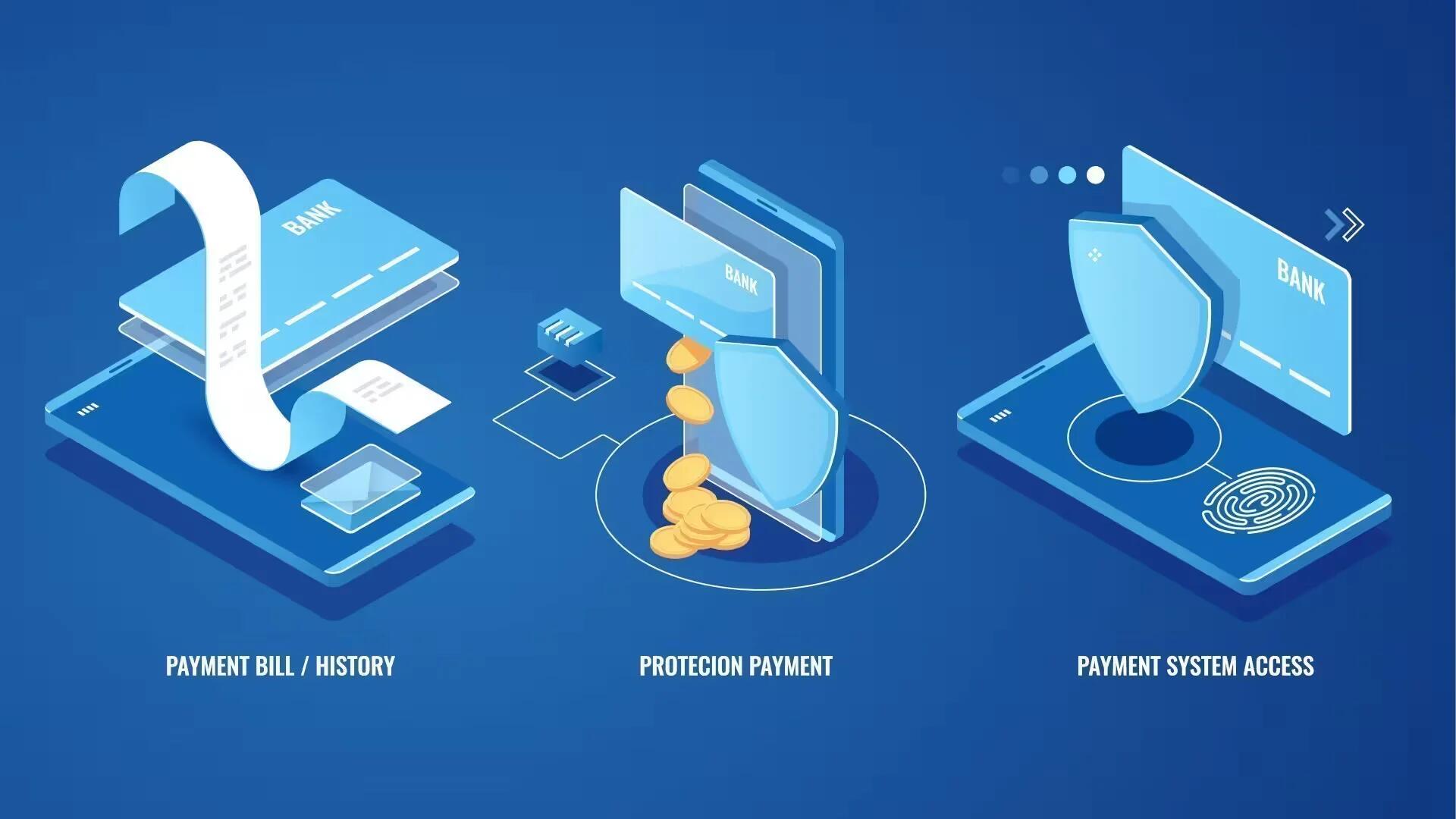In the era of digital innovation, blockchain technology emerges as a groundbreaking development, transforming sectors from finance to supply chain, and now, the legal industry. At the heart of this transformation are smart contracts, self-executing contracts with the terms of the agreement directly written into code. This article delves into the world of smart contracts, explaining their mechanisms, their benefits, and the profound impact they are having on legal frameworks across the globe. For a more in-depth understanding of blockchain technology and its potential, Melanie Swan’s book, Blockchain: Blueprint for a New Economy, provides a comprehensive background.
Smart contracts leverage blockchain technology to enforce and verify contractual terms automatically, reducing the need for intermediaries and streamlining processes. Their potential extends beyond simple transactional tasks, offering a new level of transparency, efficiency, and security in legal agreements. As we explore the intricacies of smart contracts, we will understand not just how they work but also how they are set to revolutionize the legal landscape, making it more adaptable to the fast-paced digital world.
Understanding Smart Contracts
Definition and Basics
A smart contract is a program stored on a blockchain that runs when predetermined conditions are met. They are typically used to automate the execution of an agreement so that all participants can be immediately certain of the outcome, without any intermediary’s involvement or time loss. They can automate a workflow, triggering the next action when conditions are met.
How Smart Contracts Work
The process begins with the parties agreeing to terms, which are encoded into a blockchain. This smart contract code can then automatically execute and enforce the intricacies of the agreement. Every transaction that a smart contract makes is trackable and irreversible, providing a transparent and trustworthy system. This coding not only defines the rules and penalties around the agreement in the same way that a traditional contract does but also automatically enforces those obligations.
Smart contracts automate the execution of agreements, ensuring all parties fulfill their parts of the deal without the need for intermediaries. Here is how the process unfolds:
- Agreement on Terms: First, the parties define and agree upon the terms, which are then translated into code by a programmer. This code dictates what happens when certain conditions are met and what penalties are imposed if the terms are not respected.
- Deployment on Blockchain: The smart contract is then deployed on a blockchain. Once uploaded, it becomes unalterable and accessible to all parties involved, ensuring transparency and security.
- Triggering Events: The contract includes triggers that, when met, cause the contract to execute the agreed-upon actions. These triggers are predefined events such as a date, payment confirmation, or the fulfillment of another condition.
- Execution and Enforcement: When a trigger event occurs, the blockchain processes it, and the contract executes the coded instructions automatically. This could include transferring funds, releasing information, or registering a vehicle.
Real-Life Example: A Real Estate Transaction

Imagine a scenario where a person wants to buy a house using a smart contract. Here is how it might work:
- Contract Creation: The buyer and seller agree to the terms, including sale price and transfer date. A developer codes these into a smart contract.
- Payment: The buyer transfers the payment in cryptocurrency to the smart contract. The contract holds this payment in escrow.
- Property Transfer: On the agreed-upon date, if all conditions are met (such as the seller providing proof of title), the smart contract automatically releases the funds to the seller and records the transfer of ownership in the buyer’s name. This record is immutable and stored on the blockchain.
- ** Completion:** Both parties receive confirmation of transaction completion, and any conditions (like keys transfer) coded into the contract are executed.
This example demonstrates how smart contracts can simplify complex transactions by automating several steps that traditionally require manual intervention, paperwork, and verification. By doing so, they minimize the time and potential for human error or fraud.
Comparison with Traditional Contracts
Unlike traditional contracts, which require human intervention for enforcement and are often bogged down by lengthy processing and the potential for human error, smart contracts are swift and execute automatically once conditions are met. This not only speeds up the process but also significantly reduces the potential for disputes. However, it is important to note that while smart contracts can ensure the execution of agreed terms, they are only as good as the code they are written with, which can sometimes lead to complications if not properly tested.
Smart contracts differ significantly from traditional contracts in terms of execution, enforcement, and management. Let us compare the two using a real-life example:
Real-Life Example: Supply Chain Management

Scenario: A company agrees to purchase a bulk shipment of electronics from a manufacturer.
- Traditional Contract Process:
- Contract Drafting: Both parties negotiate terms, and lawyers draft a contract which both parties sign.
- Execution: The manufacturer produces and ships the electronics. Upon delivery, the buyer inspects the goods to ensure compliance with the terms.
- Payment: If the goods are as agreed, the buyer processes the payment through banks or other financial institutions, which might take days to complete.
- Dispute Resolution: If there are discrepancies (like defective products), it could lead to renegotiations or legal disputes, further delaying the process.
- Smart Contract Process:
- Contract Creation: The terms are coded into a smart contract on the blockchain. Terms include product quality, delivery date, and payment conditions.
- Automated Execution: The shipment is tracked via IoT devices. Once the shipment arrives and meets the coded conditions (confirmed via sensors that check quality and quantity), the smart contract automatically executes the payment from the buyer to the seller.
- Immediate Settlement: Payment is immediate and automatic upon satisfaction of contract terms, with no need for manual processing or third-party intermediaries.
- Transparent Dispute Resolution: If the products do not meet the terms, the smart contract does not execute the payment, and the blockchain records serve as an immutable proof for dispute resolution.
Key Differences Highlighted:
- Efficiency: Smart contracts reduce the time needed for processing and verifying transactions. Traditional contracts often involve delays due to manual handling and third-party processing.
- Automation: Smart contracts automate actions that are conditional and deterministic, reducing the need for active management and oversight, unlike traditional contracts which require active management and human intervention at every step.
- Security and Transparency: Blockchain’s immutable and transparent nature means that all parties can trust the outcome without needing to trust each other. Traditional contracts often require intermediaries like lawyers or banks to manage trust and execute agreements.
This example clearly shows how smart contracts streamline processes and reduce the administrative burden, especially in complex operations like supply chain management, by automating and securing transactions that traditionally require extensive human oversight.
The Technology Behind Smart Contracts

Smart contracts are powered by blockchain technology, a decentralized and secure framework that ensures the integrity and transparency of transactions. The most prominent platform supporting smart contracts is Ethereum, which introduced the concept of a programmable blockchain. Detailed technical insights into how Ethereum supports smart contracts can be found in the Ethereum Documentation. Understanding the technological underpinnings is crucial to grasp how smart contracts deliver their advantages. This section delves into the basics of blockchain technology and explores how various platforms facilitate the implementation of smart contracts.
Blockchain Basics
Blockchain is a distributed ledger technology that records transactions across multiple computers so that the record cannot be altered retroactively, without the alteration of all subsequent blocks and the consensus of the network. This technology offers the following key features:
- Decentralization: Unlike traditional centralized databases, blockchains are decentralized and managed by peer-to-peer networks. Each participant (node) in the network has a copy of the entire database, which is updated by consensus based on pre-established rules.
- Immutability: Once data is recorded on a blockchain, it is extremely difficult to change. This immutability safeguards against fraud and tampering, making blockchain ideal for recording and enforcing contracts.
- Transparency: Although personal data can be kept private, transactions are visible to all participants and can be verified at any time in the blockchain. This transparency builds mutual trust among parties.
Blockchain Platforms for Smart Contracts
While blockchain began as the technology behind Bitcoin, its potential extends far beyond cryptocurrency. Several platforms now support smart contracts, but Ethereum is the most prominent.
- Ethereum: Launched in 2015, Ethereum introduced the concept of a programmable blockchain that can execute scripts using an international network of public nodes. The Ethereum platform is specifically designed for creating and executing smart contracts. It uses its native cryptocurrency, Ether, to facilitate transactions. Developers can create decentralized applications (dApps) on top of Ethereum, making it a versatile platform for smart contracts.
- Other Platforms:
- Hyperledger Fabric: Tailored for enterprise use, this platform allows businesses to build private blockchain networks that can execute smart contracts. Hyperledger is known for its high levels of privacy, scalability, and flexibility, suitable for businesses.
- EOS: EOS focuses on scalability and user-friendliness, with the capability to process millions of transactions per second and an operating system-like construct for application development.
- Cardano: Developed with a scientific philosophy and research-driven approach, Cardano introduces a secure and scalable blockchain environment for the development and execution of smart contracts.
Each of these platforms has unique features that cater to different needs, from enterprise solutions requiring privacy and scalability to public applications needing robustness and security.
Smart Contract Languages
Smart contracts are written in domain-specific languages designed to facilitate the writing of self-executing contracts:
- Solidity: The primary language for Ethereum, Solidity is statically-typed, supporting inheritance, libraries, and complex user-defined types among other features.
- Chaincode: Used in Hyperledger Fabric, Chaincode is written in Go, which allows developers to define the rules under which transactions can be accepted in the network.
- Plutus: Used by Cardano, Plutus provides a secure and robust environment for smart contracts, integrating with the functional programming language Haskell.
Understanding these technologies is essential as they provide the backbone for developing and executing smart contracts. They ensure that smart contracts are not only feasible but also reliable and secure, forming the basis for their broad adoption across various sectors.
Benefits of Smart Contracts

Smart contracts offer a range of benefits that enhance the efficiency and security of contractual transactions. These benefits are transforming industries by enabling faster, more reliable, and transparent processes. Here, we explore the key advantages that make smart contracts a valuable tool in various sectors.
Efficiency and Speed
One of the most significant advantages of smart contracts is their ability to increase operational efficiency:
- Automated Execution: By automating the execution of agreements, smart contracts eliminate the need for manual processing, reducing delays caused by human intervention.
- Streamlined Processes: Transactions and agreements can proceed much faster since smart contracts execute automatically when conditions are met, significantly shortening the lifecycle of processes.
- Reduced Costs: Automating tasks traditionally handled by intermediaries, such as brokers, lawyers, and banks, reduces the costs associated with their services.
Accuracy and Transparency
Smart contracts also improve the accuracy and transparency of transactions:
- ** Error Reduction:** By encoding terms directly into code, smart contracts reduce the risks of misinterpretation and clerical errors that are common in manual processing.
- Clear Audit Trails: Every transaction and its associated actions are recorded on the blockchain, creating a transparent, immutable history that enhances trust and accountability among parties.
- Visibility: All parties involved in the contract have access to the same information at the same time, reducing the possibility of disputes and increasing transparency.
Trust and Security
The decentralized nature of blockchain, coupled with the immutability of smart contracts, provides enhanced security and trust:
- Tamper-proof: Once a smart contract is deployed on the blockchain, it cannot be altered; this immutability protects against fraud and unauthorized changes.
- Decentralized Verification: Transactions and contracts do not rely on a single authority for approval; instead, they are verified by consensus among multiple nodes, reducing the risk of manipulation or downtime.
- Enhanced Security Protocols: Smart contracts can include built-in security measures that are automatically enforced, ensuring compliance with regulatory standards and protection against breaches.
Benefits Across Various Sectors
Smart contracts are versatile and find applications across multiple industries:
- Finance: For automating insurance claims and creating tamper-proof financial agreements that ensure transparency and fairness.
- Real Estate: In simplifying property transactions, from automating rental agreements to facilitating complex property sales.
- Healthcare: By securely automating patient consent management and ensuring confidential handling of medical records.
- Supply Chain Management: Improving traceability and efficiency in supply chains by automating transactions and keeping unalterable records of the product journey from manufacturer to consumer.
These benefits not only showcase the potential of smart contracts to streamline operations but also highlight their role in building a more secure and transparent business environment. As industries continue to evolve with digital technologies, smart contracts stand out as a key player in fostering innovation and efficiency.
Challenges and Limitations of Smart Contracts

While smart contracts offer significant advantages, they also face several challenges and limitations that can affect their implementation and effectiveness. Understanding these challenges is crucial for assessing the feasibility of smart contracts in different scenarios and industries.
Legal Recognition and Regulatory Challenges
One of the primary challenges facing smart contracts is the lack of a comprehensive legal framework that fully recognizes or enforces them as binding agreements. The ambiguity surrounding their legal status can lead to complications in enforcement across different jurisdictions.
One of the most pressing issues with smart contracts is their legal status:
- Legal Ambiguity: In many jurisdictions, the legal framework for recognizing digital contracts, including smart contracts, is still underdeveloped. This uncertainty can lead to difficulties in enforcement and acceptance.
- Regulatory Compliance: Smart contracts must comply with existing legal standards and regulations, which may not always be straightforward due to their automated nature and the global reach of blockchain networks.
Technical Limitation
Smart contracts are only as effective as the code they are written in. Bugs or vulnerabilities in the code can lead to significant losses, as seen in the infamous DAO attack where millions of dollars in Ethereum were stolen due to a code exploit. This incident highlights the risks associated with deploying flawed smart contracts on a public blockchain. The Ethereum Foundation provides ongoing discussions and updates on security practices to mitigate such risks, available here.
Despite the robustness of blockchain technology, smart contracts are not immune to technical challenges:
- Code Vulnerabilities: Since smart contracts are written in code, they are susceptible to bugs and security vulnerabilities. Any flaw in the code can be exploited, leading to significant losses.
- Scalability Issues: Blockchain networks, particularly those that handle a high volume of transactions, can face scalability issues. This can lead to slower transaction times and higher costs, diminishing the efficiency benefits of smart contracts.
- Interoperability: As different blockchain platforms evolve, there is a growing need for smart contracts to operate across these platforms. However, interoperability remains a complex technical challenge.
Scalability Limitations due to Complexity and Cost
Blockchain technologies, particularly those that host smart contracts like Ethereum, often face scalability issues. During times of network congestion, executing smart contracts can become prohibitively expensive due to rising transaction fees. This scalability problem can limit the practical use of smart contracts for small or frequent transactions. Insights into Ethereum’s scalability challenges and potential solutions are detailed in Ethereum’s official development updates.
Smart contracts also have inherent limitations that can impact their practicality:
- Complexity in Coding: Creating a smart contract requires precise coding. Misinterpretations or errors in translating legal agreements into code can lead to unintended consequences.
- Cost Implications: While smart contracts can reduce costs related to intermediaries, the initial setup, development, and maintenance of these contracts and the underlying blockchain infrastructure can be costly and resource-intensive.
- Limited by Input Data: Smart contracts are “only as good as the data they rely on.” The need for reliable external data sources, known as oracles, can introduce points of vulnerability and dependency.
Impact on Traditional Roles and Industries
The adoption of smart contracts also poses broader economic and social challenges:
- Displacement of Conventional Jobs: As smart contracts automate tasks traditionally performed by legal, banking, and other professionals, there could be significant shifts in job markets and professional roles.
- Learning Curve and Adaptation: There is a significant learning curve associated with understanding and implementing blockchain and smart contract technology. Organizations and individuals may face barriers in adopting these technologies due to the technical expertise required.
Addressing the Challenges
Efforts to address these challenges are ongoing, with developments in legal frameworks, advancements in blockchain technology, and increased awareness and education among stakeholders. Industry-specific solutions and cross-disciplinary collaborations are also emerging to tackle the complexities of implementing smart contracts effectively.
Impact on Legal Landscapes

Smart contracts are poised to dramatically alter legal frameworks and practices across the globe. Their ability to automate and enforce agreements with precision and transparency has far-reaching implications for how legal processes are conducted. As smart contracts become more prevalent, legal systems worldwide are beginning to adapt. Some countries have started to introduce legislation that explicitly recognizes and regulates the use of smart contracts. This is crucial for ensuring that these digital agreements have the same legal standing as traditional contracts.
Smart Contracts in Various Industries
This section discusses the specific sectors that are leveraging smart contracts to revolutionize their operational and legal practices.
Healthcare
In the healthcare sector, smart contracts are being explored for their potential to manage patient data consent securely and automate insurance claims. These applications can significantly improve compliance and privacy, as outlined in the report by HealthIT.gov, Blockchain: Opportunities for Health Care.
Financial Services
In financial services, smart contracts have streamlined complex financial instruments like derivatives and bonds. The Financial Stability Board provides a thorough examination of these innovations in their white paper on Decentralised Financial Technologies.
Changes in Legal Frameworks
As smart contracts become more prevalent, legal systems worldwide are beginning to adapt:
- New Legislation: Some countries have started to introduce legislation that explicitly recognizes and regulates the use of smart contracts. This is crucial for ensuring that these digital agreements have the same legal standing as traditional contracts.
- Adaptation by Legal Professionals: Lawyers and legal institutions are increasingly required to understand blockchain and smart contract technology. This shift necessitates new legal expertise and the development of practices that integrate technology with traditional legal processes.
Industry Transformations
Several industries are already experiencing the benefits and challenges of integrating smart contracts:
- Financial Services: Smart contracts have been implemented to automate complex financial instruments, such as derivatives and bonds, significantly reducing the need for manual oversight and the potential for disputes.
- Real Estate: In the real estate sector, smart contracts are being used to simplify and secure transactions such as property sales, leases, and rentals, reducing paperwork and increasing transaction speed.
- Healthcare: The healthcare industry is exploring the use of smart contracts for tasks like managing patient data consent and automating insurance claims, which can improve compliance and privacy.
Future Outlook and Developments
The potential for smart contracts extends beyond current applications, with several future possibilities:
- Widespread Legal Adoption: As the technology matures and legal frameworks evolve, we may see a broader adoption of smart contracts across more sectors and geographical regions.
- Integration with AI and IoT: The integration of smart contracts with artificial intelligence (AI) and the Internet of Things (IoT) promises to create more dynamic and responsive systems. For example, IoT devices could automatically update a smart contract based on real-time data, further automating and securing processes.
- Public Services: There is potential for smart contracts to be used in public administration, from automating tax collection to managing public records and ensuring compliance with regulations.
Impact on Customers

Smart contracts are revolutionizing not only industries and legal systems but also significantly enhancing customer experiences by transforming interactions with services and products. The inherent features of smart contracts, such as automation, security, and transparency, provide numerous benefits to customers, including clearer transaction processes, reduced costs, and improved service quality.
Enhanced Transparency
Real-World Example: When purchasing an insurance policy facilitated by smart contracts, customers experience unprecedented transparency. They can clearly see what conditions must be met for claims to be paid, reducing misunderstandings and potential disputes.
Reduced Costs
Real-World Example: In real estate transactions, smart contracts can significantly reduce the need for multiple intermediaries, such as lawyers and brokers, who traditionally add considerable costs to the process. By automating these transactions on the blockchain, the associated fees are drastically cut, making property deals more accessible to buyers.
Improved Service Delivery
Real-World Example: Customers in the supply chain sector benefit directly from smart contracts through enhanced tracking and verification of goods. For instance, a smart contract can provide automatic updates when goods are shipped and received, and it can ensure payment is only released when certain conditions, like passing a quality inspection, are fulfilled.
Customer Protection and Security
The immutable nature of smart contracts offers an additional layer of security by ensuring that contract terms cannot be altered post-deployment, protecting customers from potential fraud and breaches of contract.
Real-World Example: Consider a freelance platform implementing smart contracts to safeguard both freelancers and clients. Upon project completion, as verified through the contract’s terms, payment is automatically and securely released to the freelancer, minimizing the risk of disputes and fraud. The Ethereum Foundation discusses these security benefits and the overall stability that blockchain brings to contractual agreements in their guide on Ethereum and Security.
The transformative impact of smart contracts on customer interactions is profound, offering more transparent, cost-effective, and secure dealings across a variety of services. As blockchain technologies evolve, they promise to further enhance the customer experience, ushering in a future where transactions are not only more efficient but also more aligned with the needs and expectations of consumers.
When Smart Contracts May Not Be the Ideal Solution
Despite their advantages, there are situations where smart contracts might not be the best choice due to ethical, practical, or societal considerations.
Ethical and Societal Considerations
- Automated Decisions: Smart contracts execute automatically based on predefined rules, which can sometimes lead to unfair or unethical outcomes if the input data or conditions are not considered comprehensively. For example, automating certain legal or financial decisions without human oversight can inadvertently discriminate against vulnerable groups.
- Job Displacement: The automation capabilities of smart contracts might lead to displacement of jobs in sectors like legal, banking, and administrative services. This could exacerbate economic inequality by reducing the number of available jobs, as discussed in a comprehensive analysis by the Future of Life Institute on the societal impacts of automation here.
Practical Limitations
- Complex Legal Agreements: For complex agreements that require flexibility and subjective interpretation, smart contracts may fall short due to their rigid, code-based nature. Situations that require negotiation, empathy, or a deeper understanding of human nuances are not ideally suited for automation through smart contracts.
- Data Privacy Concerns: Smart contracts rely on blockchain, which is inherently transparent. This can lead to potential privacy issues, especially when handling sensitive personal or business data. The balance between transparency and privacy is a crucial consideration, particularly in fields like healthcare or personal finance.
While smart contracts bring efficiency and transparency to many processes, they are not a one-size-fits-all solution. The decision to use smart contracts should consider their technical limitations, legal implications, ethical concerns, and potential negative impacts on society. Being mindful of these factors ensures that the deployment of smart contracts is both responsible and effective, aligning with broader social and ethical standards.
Global Legal Adaptations and Resistance to Smart Contracts

As smart contracts continue to gain prominence, legal systems around the world are responding in varied ways, adapting to or resisting the integration of this technology. This section examines how different countries are navigating the legal challenges posed by smart contracts, featuring specific examples and case studies that illustrate a spectrum of responses.
United States: Embracing Smart Contract Technologies
In the United States, states like Arizona have been pioneers in legally recognizing smart contracts. Arizona passed legislation in 2017 that explicitly states blockchain signatures and smart contracts are legally binding, thus providing a legal foundation for these technologies. This move has set a precedent that other states are beginning to follow, signaling a wider acceptance of smart contracts as legally enforceable agreements. Further details on Arizona’s legislation can be explored here.
European Union: Cautious Integration
The European Union has adopted a more cautious approach. The EU’s Blockchain Observatory and Forum is actively assessing how blockchain technologies, including smart contracts, can be integrated into existing legal frameworks without compromising security and consumer rights. The EU is also exploring how these technologies can be used to enhance the digital single market. For a deeper understanding of the EU’s stance and ongoing initiatives, visit their official page here.
China: Regulatory Resistance and Controlled Adoption
China presents a complex case where the government has banned cryptocurrencies yet is actively promoting the development of blockchain technology for industrial and administrative uses. The Chinese government has implemented blockchain to enhance the efficiency of several governmental processes but remains cautious about fully implementing smart contracts, particularly those associated with cryptocurrencies. An analysis of China’s blockchain strategy without cryptocurrencies can be found in this detailed article from the South China Morning Post here.
Switzerland: A Hub for Blockchain Innovation
Switzerland is known for its progressive stance on blockchain and smart contracts, particularly in the city of Zug, often referred to as the “Crypto Valley.” The Swiss Federal Council has developed a comprehensive legal framework to support and regulate blockchain technologies, aiming to create a conducive environment for innovation while ensuring legal certainty. This commitment has attracted numerous blockchain startups to Switzerland, establishing the country as a leader in blockchain technology. More information on Switzerland’s regulatory environment can be found here.
Australia: Progressive Steps Toward Legal Recognition
Australia has shown a positive stance towards blockchain and smart contracts by initiating several government-backed projects aimed at exploring the potential of these technologies. The Australian government has also collaborated with industry partners to draft guidelines that could eventually lead to the broader legal acceptance of smart contracts. Details on Australia’s initiatives in blockchain can be reviewed in the government’s release here.
The global legal landscape for smart contracts is diverse, with some countries embracing the technology and others approaching it with caution or resistance due to various legal, ethical, and regulatory concerns. As the technology evolves, the legal frameworks will likely continue to adapt, potentially leading to more uniform global standards in the future. The continued dialogue among international regulatory bodies, governments, and industry leaders will be crucial in shaping the future of smart contracts and their integration into the global economy.
Conclusion: Future Outlook and Developments

Smart contracts represent a pivotal innovation in blockchain technology with the potential to revolutionize the legal landscape. By automating contractual obligations and ensuring compliance through transparent, immutable records, smart contracts offer a new paradigm for security and efficiency in legal agreements. However, their successful integration into legal systems and broader industries depends on overcoming significant challenges, including legal recognition, technical vulnerabilities, and the displacement of traditional jobs.
Looking ahead, the integration of smart contracts with artificial intelligence (AI) and the Internet of Things (IoT) could lead to more dynamic and responsive systems. As we move forward, the continued evolution of legal frameworks and technology will likely unlock even greater potential for smart contracts, making them an integral part of our digital future. This journey, while fraught with challenges, promises a more streamlined and transparent world where legal transactions are conducted with unprecedented efficiency and integrity.
